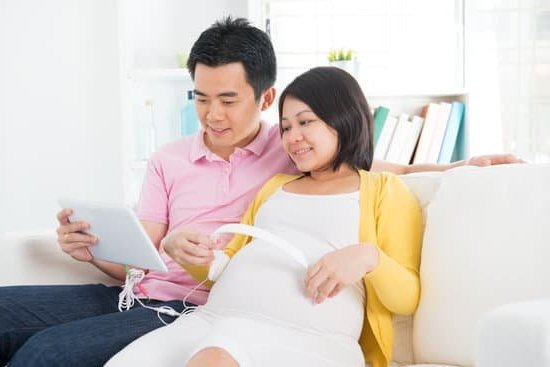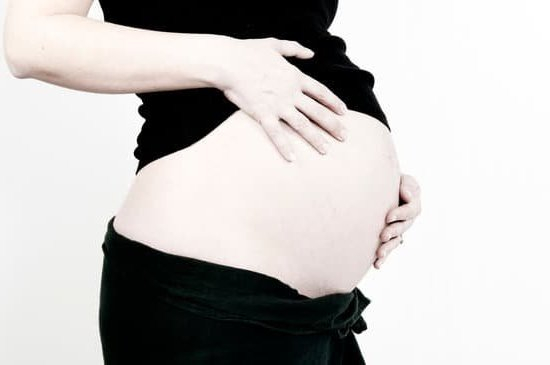What does early pregnancy feel like? Understanding the physical and emotional changes that occur during the early stages of pregnancy is important for both expectant mothers and their partners. Recognizing the early signs and symptoms of pregnancy can help prepare for the changes ahead and seek necessary medical guidance. This article will explore what to expect during early pregnancy, from physical discomforts to emotional and mental changes, and the importance of recognizing these symptoms.
The early stages of pregnancy bring about a range of physical symptoms, including nausea, breast tenderness, fatigue, and increased need for sleep. In addition to these physical changes, there are also emotional and mental shifts that can occur during early pregnancy such as mood swings, heightened emotions, and changes in cognitive function. It’s crucial for individuals to be aware of these potential changes so they can navigate this stage with proper support and care.
Understanding how appetite and cravings may shift during early pregnancy is also important – from increased or decreased appetite to specific food cravings or aversions to certain smells or tastes. Sudden sensory changes can also occur, including a heightened sense of smell, changes in taste perception, and increased sensitivity to light and sound.
These physical discomforts can be accompanied by issues like bloating, constipation, dizziness, lightheadedness, frequent urination as well as light spotting or cramping similar to menstrual cramps. By recognizing these symptoms as part of early pregnancy preparations can be made for self-care alongside seeking medical advice when needed.
Physical Symptoms
During the early stages of pregnancy, many women may experience a range of physical symptoms that can be indicative of their pregnancy. Nausea and vomiting, commonly known as morning sickness, are often some of the earliest signs of pregnancy. This can occur at any time throughout the day and may be triggered by various scents or foods.
Breast tenderness and swelling are also common, as hormonal changes in the body prepare the breasts for milk production. Additionally, increased fatigue and the need for more sleep may be experienced due to the body working overtime to support the developing fetus.
Understanding these physical symptoms is crucial for determining whether pregnancy is a possibility. Many individuals wonder what does early pregnancy feel like physically when they notice these changes in their bodies. It’s important for women to recognize these early signs so they can seek appropriate care and support as soon as possible.
| Physical Symptoms | Percentage of Pregnant Women Experiencing Symptom |
|---|---|
| Nausea and Vomiting | Up to 70-80% |
| Breast Tenderness and Swelling | Around 50% |
| Fatigue and Increased Need for Sleep | Common among most pregnant women |
Emotional and Mental Changes
During the early stages of pregnancy, many women may experience a myriad of emotional and mental changes. One of the most common symptoms is mood swings, which can be characterized by sudden shifts in emotions, from feeling elated and happy to irritable or weepy. Anxiety and heightened emotions are also frequently reported, as the anticipation and uncertainty of pregnancy can lead to increased stress levels.
Additionally, some women notice changes in cognitive function, such as forgetfulness or difficulty concentrating. It is important for expectant mothers to recognize these emotional and mental changes in order to effectively manage their well-being.
It is crucial for pregnant individuals to prioritize their mental health during this time, seeking support if needed and incorporating self-care practices into their daily routine. Given the hormonal fluctuations that occur during early pregnancy, these emotional and mental changes are a normal part of the gestational process. However, if these symptoms become overwhelming or begin to interfere with daily life, it is advisable to consult with a healthcare professional for guidance and assistance.
| Emotional Symptom | Description |
|---|---|
| Mood Swings | Sudden shifts in emotions, ranging from elation to irritability. |
| Anxiety | Feelings of worry or unease due to the anticipation and uncertainty of pregnancy. |
| Cognitive Function Changes | Forgetfulness or difficulty concentrating may be experienced by some pregnant individuals. |
Changes in Appetite and Cravings
During the early stages of pregnancy, changes in appetite and cravings are common experiences for many women. These changes can vary widely from person to person, but they are often one of the first signs that a woman may be pregnant. Here are some of the most common changes in appetite and cravings that women may experience during early pregnancy:
- Increased or decreased appetite: Many women find themselves experiencing drastic changes in their appetite during early pregnancy. Some may find that they have an increased desire to eat, while others may notice a decrease in their usual hunger levels.
- Specific food cravings: It is not uncommon for pregnant women to develop intense cravings for specific foods during the early stages of pregnancy. This can range from a sudden desire for sweet treats to cravings for salty or savory snacks.
- Aversions to certain smells or tastes: In addition to food cravings, pregnant women may also develop aversions to certain smells or tastes that they previously enjoyed. Certain strong odors or flavors that were once pleasing may suddenly become intolerable.
These changes in appetite and cravings are thought to be caused by hormonal shifts within the body. While some women may not experience any significant changes in their eating habits during early pregnancy, for others, these symptoms can be quite pronounced and disruptive.
It’s important for pregnant women to listen to their bodies and eat as healthily as possible throughout their pregnancy, even if this means adjusting their diet due to these new cravings and aversions. Consulting with a healthcare provider can also provide reassurance and guidance on maintaining a balanced diet despite the challenges presented by these symptoms.
Sudden Sensory Changes
During the early stages of pregnancy, many women experience sudden sensory changes that can be surprising and sometimes overwhelming. These changes are often attributed to hormonal fluctuations and can vary from woman to woman. Here are some of the common sensory changes that women may notice in early pregnancy:
- Heightened sense of smell: Many women report a heightened sense of smell during early pregnancy, which can make certain odors particularly strong or even nauseating. This sensitivity to smell is often associated with nausea and food aversions.
- Changes in taste perception: Some women may notice changes in their sense of taste, finding that certain foods they used to enjoy now taste different or unpleasant.
- Increased sensitivity to light and sound: Pregnancy hormones can also heighten a woman’s sensitivity to light and sound, making her more easily bothered by bright lights and loud noises.
It’s important for women to recognize these sudden sensory changes as normal symptoms of early pregnancy. Understanding what does early pregnancy feel like in terms of sensory changes can help alleviate anxiety and provide reassurance that these symptoms are a natural part of the pregnancy process.
It’s also important to note that while some sensory changes are common and expected during early pregnancy, any severe or concerning symptoms should be discussed with a healthcare provider for proper evaluation and management.
Physical Discomforts
During the early stages of pregnancy, many women experience a range of physical discomforts that can be concerning or uncomfortable. It’s important to recognize these symptoms and understand what they might feel like.
Bloating and Constipation
One common physical discomfort during early pregnancy is bloating and constipation. This can be attributed to hormonal changes that slow down the digestive system, leading to feelings of fullness and discomfort in the abdomen. It’s important to stay hydrated and incorporate fiber-rich foods into your diet to help alleviate this symptom.
Dizziness and Lightheadedness
Another common physical discomfort is dizziness and lightheadedness. Many women experience bouts of feeling faint or dizzy, especially when standing up quickly. This can be due to hormonal changes, low blood pressure, or low blood sugar levels. To help manage this symptom, it’s important to take things slowly when changing positions and make sure to eat regular, balanced meals.
Frequent Urination
Frequent urination is also a common physical discomfort during early pregnancy. As the uterus grows and puts pressure on the bladder, women may find themselves needing to use the bathroom more often than usual. While this symptom can be bothersome, it’s important to continue drinking plenty of water throughout the day to stay hydrated and support overall health.
Understanding what these physical discomforts might feel like can help prepare women for the changes their bodies will go through during early pregnancy. Seeking medical advice if any of these symptoms become severe or unbearable is crucial for ensuring both maternal and fetal health.
Spotting and Cramping
Light Spotting or Implantation Bleeding
One of the early signs of pregnancy that some women may experience is light spotting or implantation bleeding. This can occur when the fertilized egg attaches to the lining of the uterus, causing a small amount of blood to be released. This type of spotting is usually lighter in flow and may be pink or brown in color. It is important to differentiate this from regular menstrual bleeding, as implantation bleeding typically occurs around 10 to 14 days after conception.
Cramping Similar to Menstrual Cramps
Many women also report experiencing mild cramping during early pregnancy, which can feel similar to menstrual cramps. This is often a result of the uterus stretching and growing as the embryo implants itself into the uterine wall. Although mild cramping can be a normal part of early pregnancy, severe or persistent cramps should be discussed with a healthcare provider.
Understanding the Difference Between Normal and Concerning Symptoms
It is essential for individuals who suspect they may be pregnant to understand the difference between normal and concerning symptoms related to spotting and cramping. While light spotting and mild cramping are common and often harmless, heavy bleeding, severe abdominal pain, or intense cramping could indicate an issue such as miscarriage or ectopic pregnancy.
In any case, it is crucial for anyone experiencing these symptoms to seek medical advice promptly. Understanding what constitutes normal early pregnancy discomforts versus more worrisome signs can help individuals navigate this uncertain time with greater confidence and peace of mind.
Conclusion
In conclusion, early pregnancy can bring about a multitude of physical, emotional, and mental changes that may vary from person to person. It is important for individuals to recognize the symptoms and seek medical advice and support when necessary. Nausea, breast tenderness, fatigue, mood swings, changes in appetite and cravings, sudden sensory changes, physical discomforts, spotting and cramping are all common experiences in the early stages of pregnancy.
Seeking medical advice is crucial to ensure that the pregnancy progresses healthily and smoothly. Additionally, it is important for individuals to practice self-care during this time by getting adequate rest, eating well-balanced meals, staying hydrated, and seeking emotional support. Understanding that these symptoms are part of the natural process of pregnancy can provide reassurance to those experiencing them.
Overall, recognizing and understanding what early pregnancy feels like can help individuals navigate through this significant time with confidence and peace of mind. While the symptoms may pose various challenges, it is important to remember that they are a sign of a new life growing within and should be embraced with care and patience.
Frequently Asked Questions
What Does Early Pregnancy Physically Feel Like?
Early pregnancy can physically feel different for every woman, but common symptoms include breast tenderness, fatigue, nausea, and frequent urination. Some women may also experience mood swings and food cravings.
How Soon Do Early Pregnancy Symptoms Start?
Early pregnancy symptoms can start as soon as one week after conception, but they may not be noticeable until a few weeks later. Some women may experience implantation bleeding or spotting around the time of their expected period, indicating early pregnancy.
What Does Your Stomach Start to Feel Like in Early Pregnancy?
In early pregnancy, some women may feel bloated or experience mild cramping similar to menstrual cramps. The stomach may feel tender to the touch, and some women may notice changes in their digestion such as constipation or increased gas. Overall, the stomach may feel different than usual due to hormonal changes and the developing embryo.

Welcome to my fertility blog. This is a space where I will be sharing my experiences as I navigate through the world of fertility treatments, as well as provide information and resources about fertility and pregnancy.





